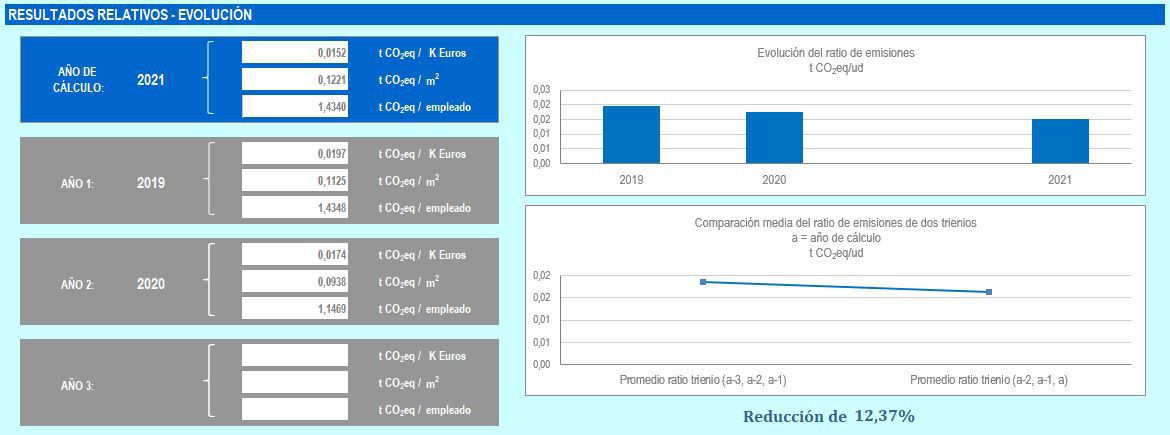Sustainability
Main objectives and strategies of the entity
DEKRA considers Sustainability as a fundamental value. That is why it has set itself the goal of being a leader in sustainability by 2025. For this reason we constantly work on developing our sustainability management in accordance with the internationally accepted Sustainability Code.
We have set ourselves the goal of making great strides in key areas by 2025. They include: carbon footprint, renewable energy, employee engagement and training, diversity, occupational safety, social engagement, partnerships, sustainability in the supply chain and services and solutions related to sustainability.
DEKRA complies with the Sustainability Code (Deutscher Nachhaltigkeitskodex,"DNK"). DEKRA's personalized approach to sustainability management is guided by the company's values and the “20 DNK criteria”. The DNK was launched by the German Council for Sustainable Development (Rat für Nachhaltige Entwicklung, "RNE"), an advisory body to the German Federal Government. The “Corporate Sustainability division” is in charge of sustainability management in the DEKRA Group.
The objective is to ensure long-term corporate success taking into account our social and environmental responsibility, framed in our 6 sustainability principles:
-
Responsible corporate governance
-
Value creation
-
I innovation and future viability
-
Employees
-
Environment
-
Society and security.
The general objective that governs our activity is: "The minimization of the environmental impact, preventing possible contamination, reducing the waste we generate, promoting the reduction, reuse and recycling among our employees, we minimize the consumption of natural resources, whenever it is feasible. technically and economically and the promotion of good environmental habits and deep respect for the environment”
Therefore, DEKRA is committed to protecting the environment, flora and fauna, and mitigating climate change.
Los objetivos estratégicos de DEKRA para el año 2025 son:
-
Convert our energy sources to 100% renewable and reduce our CO2 emissions from energy consumption, vehicle fleet and business trips by 50% compared to 2018.
-
Prevent work accidents, improve work safety and eliminate potential risks. By 2025, our goal is to reduce our accident rate by 30% compared to 2018.
-
Improve employee engagement by 20 percent over 2019 levels by 2025.
-
Increase the gender diversity of our management teams by more than 15% compared to 2019.
· In terms of employee training and development, our goal is to increase the annual average number of days of training per employed to more than five by 2025.
· In our supply chain, we aim to have 100% of Global Procurement managed suppliers reviewed for sustainability by 2024.
·
By 2024, our goal is to improve our contribution to the sustainability of our partners and increase sales of sustainability-related services and solutions, based on the experience of our employees.
Expand our social engagement and related sustainability initiatives and partnerships.
The main pillars of DEKRA Industrial's environmental management are:
1. Integrated environmental management policy and system - Compliance with UNE EN UNE EN ISO 14001:2015 standards
2. Annual environmental goals to improve our environmental performance
Planning and environmental operational control
In addition, we have a "Process Map (document DS-SGI-02)" where the different processes of the company are identified. Of these, the affectation they have to produce environmental impacts has been analyzed "Identification of Environmental Aspects (document DS-SGI-05)" and finally evaluated the "Most Significant Environmental Aspects" (document DS-SGI-16).
-
Control of consumption of natural resources, relevant and highlighted as Environmental Aspects (fuel, paper, electricity, water consumption).
-
Management control of waste generated.
-
Control operacional de procesos externalizados, realizando la evaluación de sus proveedores: Seguimiento y control DEKRA a través del departamento de Calidad y Medio Ambiente, realiza el seguimiento del control operacional ambiental, evaluando la efectividad de los indicadores de control fijados y tomando las acciones de mejora que considere pertinentes.
Estos controles nos han permitido realizar el Registro de huella, compensación y proyectos de absorción de CO2.
Año 2019: Registro 2022-a0277
Año 2020: Registro 2022-a0288
Año 2021:
DEKRA, being aware of the potential emergency situations that may occur and to which it must react, has an Emergency Plan, which aims to comply with point 8.2 of the UNE-EN ISO 14001:2015 Standard. (document DS-SGI-10).
Who or who at management level carries out the decision-making and good governance processes for the implementation of CSR in line with the Global Compact Principles and whether the chairman of the highest governance body also holds an executive position.
It is also the interlocutor for all collaborators in specific questions related to the rules of ethics and offers lasting help in mastering ethical and legal challenges in daily work.
DEKRA checks through a regular internal audit whether the rules of the Code of Ethics are in place in all sectors and in all regions of the world and whether there are indications of violations.
The decision and good governance processes for the implementation of CSR in line with the Principles of the Global Compact and the Sustainable Development Goals are approved by the General Director based on the information sent by the Heads of the different divisions in which it is located. organized DEKRA Industrial, SA
